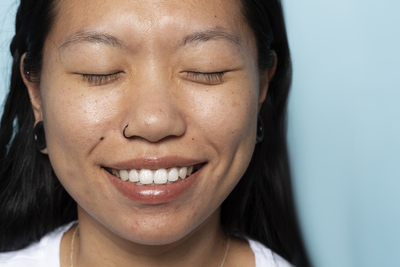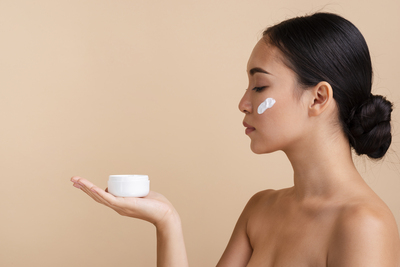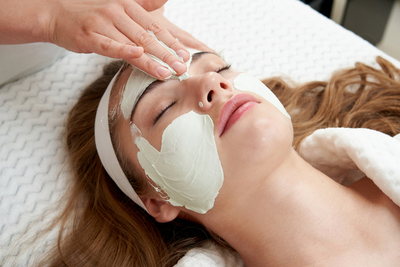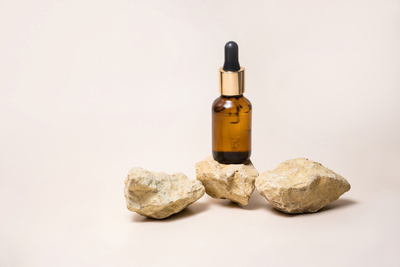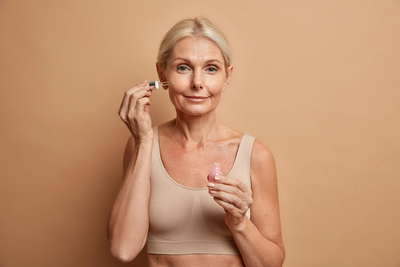7 Surprising Causes Of Acne You Didn’t Expect
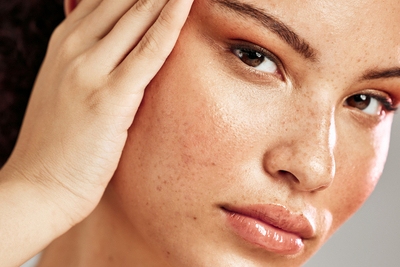
Skin is one of the largest human organs. It's no secret that rashes appearing on it are a signifier of internal health problems. Are you struggling with breakouts? Well, let’s figure out what your skin is about to tell you!
What Is Acne?
Acne is a disease associated with increased sebum production and enlarged and clogged sebaceous glands. Acne bacteria multiply in areas where the sebaceous gland is blocked. And this causes inflammation. Now, let’s take a deeper look at the key question: what are the root causes of acne?
What Provokes Acne?
-
Genetics. According to the BMC Medical Genomics Journal, a predisposition to pimples can be inherited from your family. And this is one of the main causes of breakouts. This is why some don’t take too much care of their skin and nutrition and still, breakouts don’t attack them.
-
Problems in the endocrine system. One of the factors influencing the course of acne is the hyperfunction of the sebaceous glands. Hormones that are produced at the level of the hypothalamus, pituitary gland, adrenal cortex and gonads are responsible for the regulation of sebum secretion. In simple words, the glands produce more sebum and this contributes to clogging of pores.
-
Androgens (male sex hormones) influence sebaceous gland receptors. Thus, the production of sebum is increased. So, skin cells exfoliate faster. As stated by the National Library of Medicine, the mixture of sebum and keratinocytes clogs the pores, and blackheads appear in them.
-
Improper skin care. It is crucial to choose the right skin care products. Don’t wash your face with alkaline detergents, as they dry out and dehydrate the skin. To restore its barrier properties, it begins to produce sebum even more. For the same reasons, give up on using alcohol-based skincare products. Moreover, frequent use of heavy, comedogenic makeup can cause problems by clogging pores.
By the way, you can choose cosmetics for acne-prone skin on our website. All you have to do is mention your concerns and then, proceed to search for non-comedogenic products.
-
Mechanical traumas, including squeezing out blackheads and pustules, are the next causes of pimples on the face. First, when the skin is injured, the infection penetrates deeper into the skin - in this case, a small pimple can turn into a large cyst. Second, the pathogen will be carried to healthy areas of the skin and can settle there. This will trigger the appearance of more pimples.
-
Diseases of the gastrointestinal tract. Gastroenterological diseases, dysbacteriosis, diabetes mellitus, and metabolic disorders are additional risk factors, mentions the Canadian Digestive Health Foundation. Harmful substances accumulate in the skin, causing inflammation.
-
Mental health issues. When we experience stress, cortisol and adrenaline are released. The production of neurotransmitters and neuropeptides is activated. These changes result in a weakening of its skin’s natural defenses. The skin can’t resist pathogenic microorganisms, free radicals and other external factors that attack it. This slows down the recovery processes.
Acne Treatment
As claimed by the American Academy of Dermatology Association, there is no acne-treatment scheme that suits everyone, so it's best to see a professional. After the examination (and if necessary), the doctor will:
- Prescribe tests that can help determine all causes of acne;
- Prescribe a course of external treatment and oral medications (this is especially important for hormonal causes of acne);
- Choose acne-treatment products for daily care. By the way, on SkinBuddy you can read the product descriptions in more detail and choose what is right for you;
- Prescribe cosmetic procedures that will help cope with the consequences of acne;
- Create an individual diet aimed at cleansing and healing the entire body, and the skin respectively.
Try SkinBuddy to find out what works for your skin, and what doesn’t.
Scan your skincare, avoid pore-clogging or irritating ingredients, and discover smarter product matches. Open the web app or download the mobile app to get started.
or
Check Products OnlineCheck if your skincare suits your skin type, sensitivity, or acne-prone needs at skinbuddy.app and discover better options that match your routine and goals. SkinBuddy makes it easy, fast, and science-backed.
Scan to get started:

Web App (mobile only)

App Store & Google Play
References
- Hwee Sing Heng, A. (2021, April 13). Gene variants associated with acne vulgaris presentation and severity: a systematic review and meta-analysis. BMC Medical Genomics. https://bmcmedgenomics.biomedcentral.com/articles/10.1186/s12920-021-00953-8
- Iftikhar, U. (2019, January). Serum levels of androgens in acne & their role in acne severity. Pakistan Journal Of Medical Sciences. National Library Of Medicine. https://www.ncbi.nlm.nih.gov/pmc/articles/PMC6408631
- Stodola, T. (2023, July 18). Acne and Digestive Health. Canadian Digestive Health Foundation. https://cdhf.ca/en/acne-and-digestive-health
- Ludmann, P. (2024, March 19). Acne: Diagnosis and Treatment. American Academy Of Dermatology Association. https://www.aad.org/public/diseases/acne/derm-treat/treat



